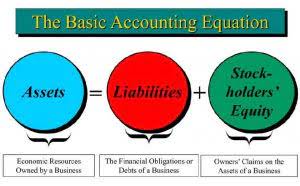
On the other hand, income refers to what is left over after the firm’s costs and expenses have been deducted from the revenue. Taxes, property expenses, legal dues, and payroll are typical expenses law firms must deduct from revenue to get income. Mixing up the two can give you a false picture of your firm’s financial health. Specifying your accounting methods and needs is another important step to mastery of legal accounting and financial management. The appropriateness of one method over the other highly depends on the characteristics of your firm. InvoiceSherpa supports accounting for law firms by saving you time and energy, increasing your cash flow, and getting invoices paid faster.
- When looking at the importance of solid accounting, you’re really talking about looking at financial data on a regular basis.
- This type of accountancy gives you a clear look at your current financial situation.
- Comparing different banks’ answers to these questions will help you decide which institution and account are right for you.
- Automated bill reminders enable you to automatically send outstanding balances to your clients and bill recipients based on a schedule you can customize.
- Your accounting method determines when and how your law firm records income and expenses.
- The right legal bookkeeping solutions can streamline trust accounting, automate invoicing, and ensure compliance, saving your firm time and reducing the risk of costly errors.
- Accounting, on the other hand, deals with interpreting and presenting this financial information to relevant parties.
Set up your law firm’s bank accounts

Beyond just staying organized and compliant, following best practices for accounting for law firms will help you identify growth opportunities. Trust accounting is the bookkeeping of clients’ income and expenses that are held in trust. This type of accounting for law firms may include assets from settlements or retainers fees. These funds held in a trust are not the law firm’s property but are individuals or institutions known as trustees. One important legal bookkeeping practice is ensuring that client costs—such as filing fees, expert witness costs, or court fees—are tracked and managed separately from the firm’s operating expenses. Failing to properly allocate these expenses can lead to inaccurate billing, complicate tax filings, and raise issues of compliance.
What to look for in a legal accountant

Ensure all tax filings are completed correctly and on time to avoid potential penalties or legal issues. You will also want to inquire about their relevant education and training in bookkeeping and financial account management. Ultimately, financial reporting is more than just a requirement—it’s a tool for strategic decision-making that helps you optimize your firm’s performance and grow your practice with confidence. Molly McGrath is the dynamic Founder and CEO of Hiring and Empowering Solutions, a leading consultancy specializing in optimizing talent acquisition and development strategies.
- This is a more appropriate accounting method for large firms with high client turnover.
- Law firms must follow strict rules regarding client trust accounts (such as IOLTA accounts).
- Revenue refers to the money, payments, and proceeds your firm receives.
- Reliable bookkeeping for attorneys also provides accurate financial data for legal accountants to work with.
- If you don’t have a strong accounting practice handling your affairs, you might be surprised at all the expenses you incur and pay each month.
Clio Manage: For legal practice management that supports accounting for law firms
When it comes to accounting for law firms, there’s no one legal accounting services “right” method (though you may be required to take on the accrual method). Some software platforms allow you to use accrual-based books for monthly management of the firm while also creating cash-basis statements for preparing tax returns. Look into the pros and cons of both methods for your firm, then be consistent going forward to ensure your records are accurate and easy to track.
Ensure you have the right bank accounts set up

Many law firm owners understand the importance of preparing for year-end accounting and tax filings, but it’s easy to delay organizing financials until deadlines approach. However, solid bookkeeping for law firms isn’t just about year-end reports—it’s about having a clear picture of your firm’s financial standing all year long. Effective accounting for law firms is critical to your firm’s success. To ensure your firm’s financial statements are accurate, complete, and up-to-date, you need to use sound bookkeeping for attorneys. Law firms require specialized accounting tools that go beyond generic bookkeeping software.

Clio Accounting: Accounting made approachable
They also face tax-compliance issues at the state and federal levels and municipal taxes. To prevent costly errors, your firm needs a structured bookkeeping system from day one. This legal bookkeeping checklist will walk you through everything you need to HVAC Bookkeeping keep your finances compliant, organized, and audit-ready.

By using sound bookkeeping practices to keep accurate records and bookkeeping consistently review the firm’s financial statements on a monthly or weekly basis, you’ll see your firm’s true financial picture. Committing to accounting for law firms will allow you to be better equipped to identify growth opportunities. If your law firm doesn’t already have business bank accounts, it’s time to open them. Most firms will need three business bank accounts at a minimum—checking, savings, and a separate IOLTA or trust account. Without the proper business bank accounts, you risk inaccurate bookkeeping, messy records, and potential compliance violations regarding trust funds.
Contents: Guide To Accounting for Lawyers: Everything You Need to Know
Reliable bookkeeping for attorneys also provides accurate financial data for legal accountants to work with. Legal bookkeepers and legal accountants work with your firm’s financials, with the shared goal of helping your firm financially grow and succeed. Successful law firms know everything about their money, from where it came from to where it will go.
Types of Law Firms Accounting and How They Compare
This method does not recognize various payment accounts, such as accounts receivable and payable. Understanding these terms and how they relate will help law firms properly manage their finances. Additionally, maintaining accurate books helps ensure that all financial information is correct and up-to-date. Tax compliance isn’t optional, and for law firms, the stakes are even higher. Missed payments, misclassified revenue, or neglected deductions can lead to penalties, IRS scrutiny, and unnecessary financial stress.

